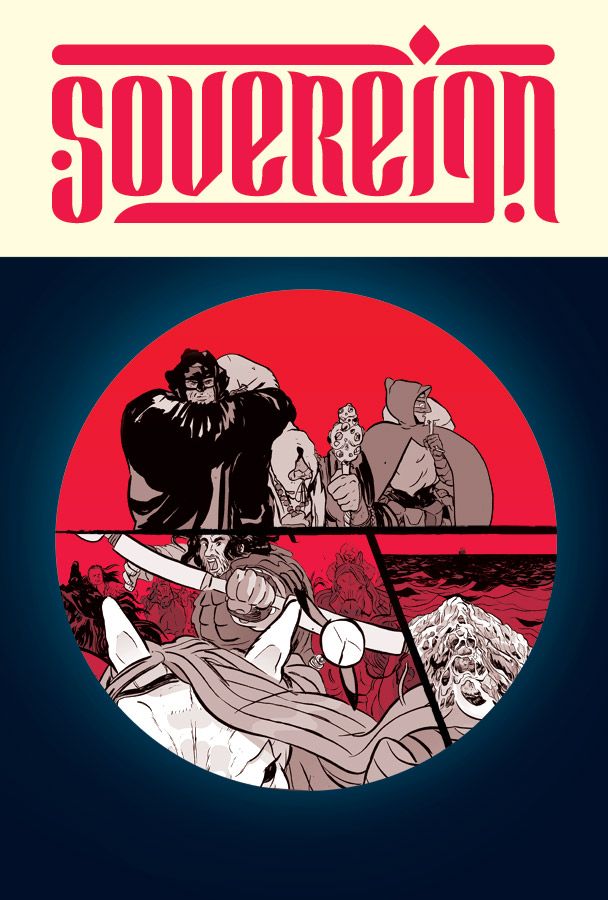Despite its much-appreciated complexity and multinational bent, Chris Roberson and Jonathan Maybury's "Sovereign" does not have a strong first issue. It struggles to world-build clearly, does not develop its characters very much and - what perhaps bothered me most - fails to make the most of its medium. As a series opener, it tells the audience a lot about the creative team's approach, but not much about the characters or the world. Luckily for the coming issues, that approach is a great one; it should make for a series with a strong and many-contoured political landscape. But this introduction unfortunately undersells "Sovereign."
For me, one of the most interesting parts of fantasy is what it can say about international politics, and how important intercultural understanding can be in a crisis. In large-scale fantasy battles, it's not just about how "know your enemy" can help to win the war; it's often about how not knowing one's enemy can escalate a conflict or introduce one where it needn't exist. So I'm excited that "Sovereign" is clearly interested in the ways that different groups intersect and do or don't interact. Rather than resorting to the homogenous, monolith cultures that sometimes pop up in the fantasy genre, the creative team is constructing a more complex society.
The first issue is split into three parts, highlighting three groups who have nothing in common except a shared threat. One chapter follows the Luminari, the caste-less outcasts responsible for disposing of the dead; the second follows the heir apparent to the throne of Khend, who is more horse-lord than Khendish; and the last follows a diplomatic envoy from Albelund en route to Khend. Through these short pieces, "Sovereign" #1 does succeed in laying out each group's broad concerns, but it didn't get me to invest in either them or the broader universe.
It was telling that the prose at the end was the most compelling piece of world- and character-building. That section has all the good stuff - details about the world, clear historic alignment, a poignant character arc - that the actual "comics" part of the issue lacks. These are things that the reader needs to know, but Roberson tacks them on at the end rather than integrating them. I'm not against comics with long text portions in the back ---what fantasy fan doesn't love a meaty appendix? -- but dumping all this here feels like cheating. It also feels like it's selling the potential of comics short. Prose might convey this information more easily, but that doesn't mean it does so more effectively or engagingly.
Maybury's art is also somewhat awkward. His figures felt buried in their cloaks and costumes, and it could be difficult to discern what was going on. That said, I thought the reanimated shark corpse in the third chapter was creative and wonderfully done. As it coursed through the water toward the envoy's ship, it looked like there were wailing skulls in its wake.
The issue as a whole is beautifully designed. The title pages for each of the three segments are modern and impactful, and the quotes at the beginning, though they're an often-used approach, provide a clean encapsulation of each chapter's emotional setting.
Perhaps the team behind "Sovereign" sees the multicultural, multi-layered nature of its story as the series' real selling point, and that's why this issue is structured to reveal so little about each group. If so, in some ways they're right. It's at least sold me on the next two or three issues. However, I do wish they'd sold it more strongly on the world and the characters themselves -- because they all look quite interesting.

